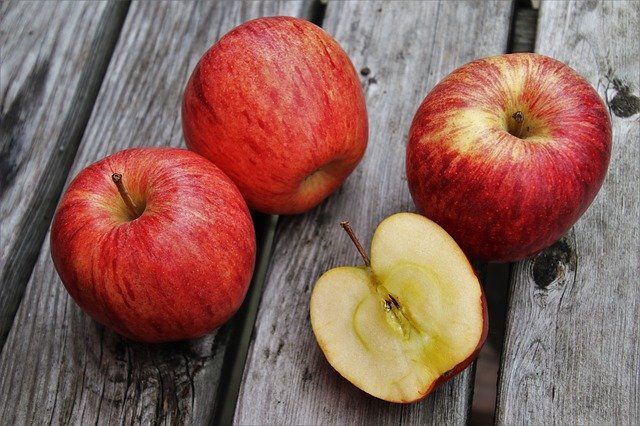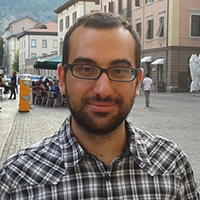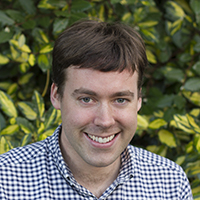Eating apples for a healthier heart, the links between tropical and European weather and how digital publishing has changed design of the written word are among the research topics that have won prizes for Reading early career researchers.
|
|
|
|
|
|
Four academics, one from each research theme, have been honoured with a Research Output Prize for early career research.
Professors Parveen Yaqoob and Dominik Zaum, Pro-Vice-Chancellors for Research and Innovation, said: “Congratulations to the four winners of this year’s Research Output Awards. These are outstanding early career researchers and future research leaders, whose work is highly relevant to many aspects of our daily lives.
“As in previous years, the four winners came from a large pool of excellent submissions from across our research themes, and they underline the vibrancy as well as the breadth of the University’s research.”
The winners from each theme were:
Agriculture, Food and Health: Dr Athanasios Koutsos (Food and Nutrition Sciences)

An apple a day won’t keep the doctor away – but two might.
Eating just two apples a day could help reduce your risk of heart disease, according to research carried out in 40 people with slightly raised cholesterol levels led by Dr Athanasios Koutsos.
Previous research has suggested that molecules called polyphenols and fibre found in apples could reduce heart disease risk, but this is the first high quality trial in human volunteers to report that eating apples significantly lower cholesterol and improves blood vessel health.
The trial looked at over 35 parameters linked with heart disease including insulin, glucose, signs of inflammation and the stiffness of participants’ arteries. The study findings suggest that simple changes to our diet – such as eating two apples a day – may be important for heart health.
Original paper: Two apples a day lower serum cholesterol and improve cardiometabolic biomarkers in mildly hypercholesterolemic adults: a randomized, controlled, crossover trial. American Journal of Clinical Nutrition (2019)
Prosperity & Resilience: Sarah von Billerbeck (Politics and International Relations)

Described by the judges as ‘highly innovative,’ Dr von Billerbeck’s paper looks at how international organisations legitimise their own practices and goals internally to help develop and reinforce their identities, even though different aspects of their identities can sometimes contradict one another.
Using NATO, the World Bank and the UN as case studies, the paper takes a fresh approach by looking at these organisations’ self-legitimation practices rather than how they demonstrate the legitimacy of their actions to the outside world.
Drawing on insights from international relations, sociology, management studies, and organizational psychology, Dr von Billerbeck argues that self-legitimation is both necessary for international organisations and crucial for our understanding of them.
Original paper: Mirror, Mirror On the Wall:” Self-Legitimation by International Organizations, International Studies Quarterly (2019)
Environment: Dr Robert Lee (Meteorology)

In tropical regions, differing weather patterns within a season are strongly influenced by a weather circulation pattern called Madden‐Julian Oscillation (MJO). This weather pattern in the tropics can affect the weather thousands of miles away in Europe via teleconnection – a remote linkage between the MJO and the North Atlantic‐European (NAE) region – and this can help meteorologists make long-range weather forecasts.
Seasonal climates are under the control of a different teleconnection called the El Niño‐Southern Oscillation (ENSO). The two teleconnections travel through one another and a study by Dr Robert Lee has discovered strong dependencies between them.
This suggests that the MJO-NAE teleconnection is both sensitive to climate change and intrinsically linked with ENSO, and as such should be built into long-range seasonal weather forecasts.
Original paper: ENSO Modulation of MJO Teleconnections to the North Atlantic and Europe. Geophysical Research Letters (2019)
Heritage & Creativity theme: Matthew Lickiss (Typography)

Documents can now exist in many different forms including print, website, app, pdf and ebooks. This rapid proliferation and adaptation has outstripped the pace of typography design theory.
In his book, Professor Lickiss presents a theoretical framework which describes documents as ‘sets’ across print and digital media. Using newspapers and catalogues as contemporary case studies, the book brings together graphic design and linguistics research.
It asks fundamental questions about the nature of documents, how they change, and what they mean. It also brings an original design perspective to the growing, global field of digital technologies, to develop new theories and show their direct, practical application.
Original monograph: Design perspectives on multimodal documents: system, medium and genre relations, Routledge (2019).




